Here’s a Podcast – E3 Spectacular Day Three
Posted on 12 years ago by Austin(@NE_Austin) in Features, Podcast | 0 comments
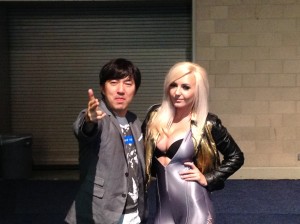
Probably the best photo from the day.
This final E3 2013 episode has impressions of Killer is Dead, The Legend of Zelda: A Link Between Worlds, some final thoughts on Super Mario 3D World, and much more. As always we get your listener mail and go over some categorized favorites at the end of the show, like our favorite booth attendants!
This Week’s Podcast Crew: Jack, Laura, and Austin
Subscribe via iTunes by clicking this thing!
Subscribe with Google by clicking this thing!
Subscribe with Yahoo something-or-other by clicking this thing!
[E3 Impressions] Sonic: Lost World
Posted on 12 years ago by Austin(@NE_Austin) in Features, Wii U | 0 comments
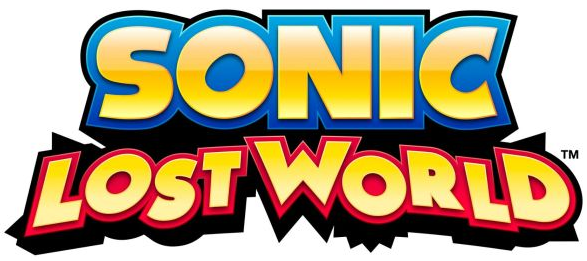
System: Nintendo Wii U
Release Date: October 13th, 2013
Developer: Sonic Team
Publisher: SEGA/Nintendo
Author: Jack
I must say, I don’t think I’ve felt this much buzz surrounding the (we’re far past much-)maligned Sonic franchise since the release of Sonic Unleashed back in 2008. While that iteration ended up as all of the others have in the post-Adventure scrap heap, something feels different about this. It felt like in the trailer as though an emphasis was placed on technical gameplay as opposed to a return to something: speed, the 90’s, etc. The last title in the 3D Sonic series, 2011’s Sonic Colors, was surprisingly solid, and although it fundamentally lacked enough to be considered a triple-A title, it showed finally that Sega team, behind director Morio Kishimoto, was willing to look behind the confines the original trilogy on Genesis imposed upon the series.
Sir Kishimoto is back at it this time, and golly was I interested in giving Sonic yet another last go at this year’s E3.
[E3 Feature] Pac is back
Posted on 12 years ago by Austin(@NE_Austin) in Features | 0 comments
As the second day of E3 2013 came to a close, Austin showed me an interesting bit of swag he acquired from his booth tour of Namco-Bandai, and I’d like to share it with you all, as this could be pretty big. As the story goes, as he was leaving, he noticed a box marked “Do Not Open– Day 3” next to the exitway of the tour. Curiosity proved too much, and after sneaking under a barricade and opening the box, he found it filled with these:
[E3 Impressions] Mario & Sonic at the Sochi 2014 Olympic Winter Games
Posted on 12 years ago by Austin(@NE_Austin) in Features, Wii U | 0 comments
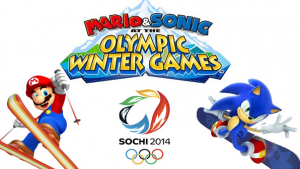
System: Nintendo Wii U
Release Date: November, 2013
Developer: Unknown
Publisher: Nintendo
Author: Laura
Alright, alright so I know you all have been DYING to know more about Mario & Sonic at the Sochi 2014 Olympic Winter Games (phew), so here’s the scoop: Unless the frame rate and controls are improved– or the other mini games available in the full version are more fun than what I played– it will not be worth $60.
[E3 Impressions] A Surprise Hiding in Plain Sight: Pikmin 3
Posted on 12 years ago by Austin(@NE_Austin) in Features, Wii U | 0 comments

System: Nintendo Wii U
Release Date: August 4th, 2013
Developer: Nintendo EAD Group No. 4
Publisher: Nintendo
Author: Jack
Were you to ask me what I’d be excited for the most coming into Nintendo’s first E3 with the Wii U on the-stocking-shelves a few days ago, I’d probably have a fully mindful answer for each finger-on-the-hand. Given the somewhat sparse industry-wide response to Nintendo’s follow-up to the successful Wii, and with two competitor consoles set to drop in five months, I was fully expecting Nintendo to arrive at the Los Angeles Convention Center guns a-blazing, ready to duke it out with Sony and Microsoft the way they do best: releasing can’t miss first-party Nintendo gaming experiences that no other platform really has an equal for.
Here’s a Podcast – E3 2013 Day Two Spectacular
Posted on 12 years ago by Austin(@NE_Austin) in Features, Podcast | 0 comments

I took this picture. It was glorious.
The second of our E3 2013 podcast specials is slightly more focused… but still a little odd. We give our impressions of Phoenix Wright: Dual Destinies, Killer is Dead, Bayonetta 2, and Batman: Arkham Origins (which we liked), as well as some thoughts on Mario 3D World, LEGO: Friends, and Deus Ex: Human Revolution , (which we were more tepid towards). Your listener mail rounds out this one.
This Week’s Podcast Crew: Jack, Austin, and Laura
Subscribe via iTunes by clicking this thing!
Subscribe with Google by clicking this thing!
Subscribe with Yahoo something-or-other by clicking this thing!
Here’s a Podcast – E3 2013 Day One Spectacular
Posted on 12 years ago by Austin(@NE_Austin) in Features, Podcast | 0 comments
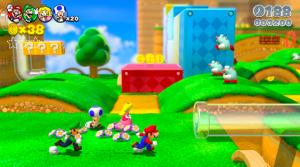
sigh…
The gang craps all over Super Mario 3D World, loves Pikmin 3, praises Platinum Games, and gets into the most intense laughing fit the world has ever known. We’d like to apologize in advance for the length, the content, and the potentially loud snores from Laura as she fell asleep halfway through.
This Week’s Podcast Crew: Jack, Austin, and Laura
Subscribe via iTunes by clicking this thing!
Subscribe with Google by clicking this thing!
Subscribe with Yahoo something-or-other by clicking this thing!
[REVIEW] Mutant Mudds Deluxe (Wii U)
Posted on 12 years ago by Austin(@NE_Austin) in Features, Reviews, Wii U eShop | 0 comments
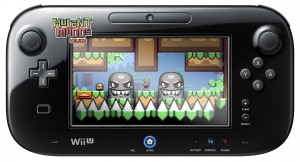
System: Nintendo Wii U
Release Date: June 13th, 2013
Developer: Renegade Kid
Publisher: Renegade Kid
Author: Austin
There was something exceptionally captivating about Mutant Mudds when it released on 3DS back in January of 2012. I think, for me, the combination of slower-paced platforming and old school difficulty that Renegade Kid created scratched an itch that few games do, so naturally I was quite pleased upon hearing the announcement of an HD re-release for Max and his muddy rivals on Wii U.
It has been a long and arduous wait (the game was meant to hit Wii U much closer to launch after all), but I’ve finally got my hands on all 80 levels of Mutant Mudds Deluxe and I must report: It’s every bit as good as you’d think.
Nintendo at E3 – a look back – E3 2011 and E3 2012
Posted on 12 years ago by Brian(@NE_Brian) in 3DS, Features, General Nintendo, Videos, Wii U | 0 comments
What better way is there to start a Nintendo conference than with a live Zelda performance? That’s exactly what attendees were treated to in 2011. A full-blown orchestra performed a medley of tunes from the Zelda series, capped off with new footage from Skyward Sword.
A series of Zelda announcements followed: Link’s Awakening 3DS VC release that very day, Four Swords for DSiWare, Skyward Sword’s gold Wiimote, symphony concerts, and music CDs.
The 3DS received the spotlight next. Nintendo unveiled new trailers for Mario Kart 7, Super Mario 3D Land, Kid Icarus: Uprising, and Luigi’s Mansion: Dark Moon. Time was also taken to highlight Star Fox 64 3D.
What followed was all Wii U – the system’s name, GamePad reveal, overview trailer, and games. The very mention of Smash Bros. earned a huge reaction.
And who can forget how Nintendo closed its conference? With now-former EA CEO John Riccitiello coming on stage to announce the publisher’s “unprecedented partnership” with Nintendo. Oh how quickly things can change…
Here’s a Podcast – Episode 45!
Posted on 12 years ago by Austin(@NE_Austin) in Features, Podcast | 0 comments
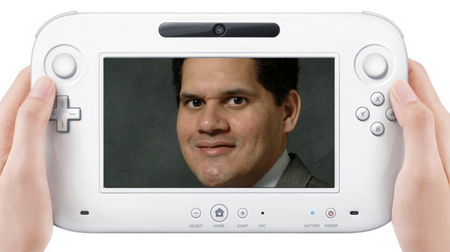
It’s the pre-E3 podcast, which means predictions predictions predictions! But first, we’ve got our “what we played” for the week, your regular news (Laura tries her hand at some yet again), and your listener questions! Lots of stuff to go through this week so get listenin’!
This Week’s Podcast Crew: Austin, Jack, and Laura
Subscribe via iTunes by clicking this thing!
Subscribe with Google by clicking this thing!
Subscribe with Yahoo something-or-other by clicking this thing!